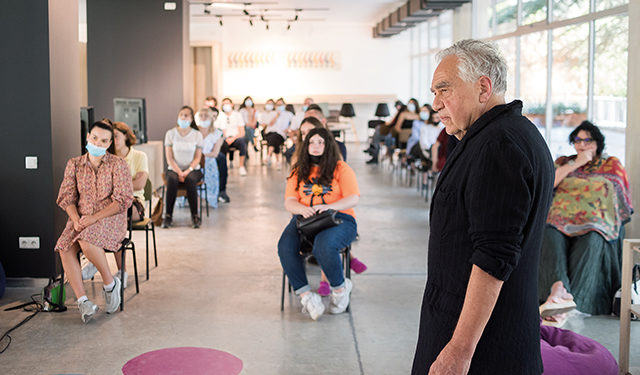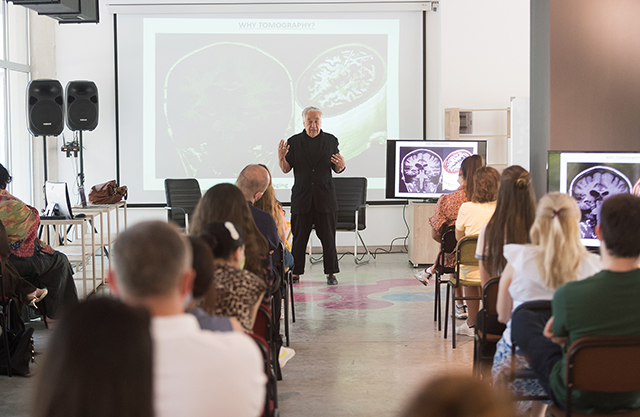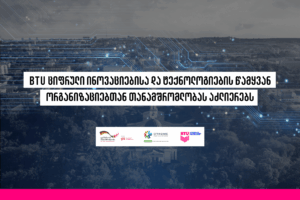
At Business and Technology University, Biotechnology Week Held with Participation of Science Developer Carl Zeiss AG
Biotechnology Week is over at the Business and Technology University. The event, which started on June 16, ended successfully, As the organizers noted, it exceeded all expectations in terms of interest and reports from the attending public, the diversity, and the dynamism of the masterclasses.
The week was organized by the Business and Technology University (BTU) in partnership with the Caucasus Representation of CARL ZEISS AG, a company which has existed since 1846 as a manufacturer of innovative technologies in the fields of medicine, biotechnology, and astrology. ZEISS’s name is associated with many innovative achievements, among them, the highest quality optics (ZEISS), used in microscopy, and the most complex medical, scientific and astrological instruments. Carl Zeiss himself participated in the flight of the first ship to the moon and invented the planetarium. The CARL ZEISS Company also operates a fund whose main mission is the development of science, and for this, almost 40% of the company’s revenue is transferred to the fund, which is used to fund scientific research.
The target groups of the week were pupils, entrants, students, researchers, and startups working in the biotechnological field or wishing to get involved. The workshops, masterclasses, and lectures held for them were prepared by leading Georgian scientists working in the field, their reports richly saturated with visual-practical spectacles and examples. Among speaker scientists and specialists in the field was Head of CARL ZEISS Foundation Caucasus Office, Nino Lomuashvili with a public lecture entitled ‘CARL ZEISS – Leader of Artificial Intelligence and Biotechnology;’ Specialist in cell/tissue biology, recognized expert in 3D / 4D digital imaging technologies of modern microscopy and bio-structures Pavle Chelidze, with master classes ‘Digital optics: From space to individual molecules’ and ‘Intellectual Images: Life Imprinted in Space and Time;’ and neurobiologist, Doctor of Biological Sciences, Professor of Ilia State University, Head of the Laboratory of Brain Ultrastructure and Nanoarchitectonics Ivane Beritashvili Center for Experimental Biomedicine, Mzia Zhvania, with the topics ‘Fundamentals of Nanotechnology’ and ‘Nanotechnology in Biology and Medicine.’
Biotechnology Week was held in Georgia for the first time. As Nino Enukidze, Rector of the Business and Technology University notes, the most important thing in this process is that Georgian scientists with many years of experience in cooperating with the world’s leading research institutes were presented in front of people interested in this field.

“Biotechnology is a particularly interesting field for the Business and Technology University, as it is one of the fastest-growing sectors in the innovative ecosystem globally, with growing funding, venture capital, and employment,” Enukidze noted. “Ultimately, we imagine it will move globally into the top three industries that will grow rapidly and become one of the largest employers.
“Against the background of the pandemic, everyone saw the importance of biotechnology once again. There are approximately 10,000 diseases in the world and only 500 of them are managed and cured with the involvement of medication. The rest is still unexplored. Diseases are one of the very small areas covered by biotechnology. Today, this field covers the field of agriculture, agriculture, pharmacology, bio-mega data processing using artificial intelligence, nano technologies, synthetic biology, which is considered to be the field of the future, etc. In short, this field is endless and since the technological component has entered biology very actively, this has also attracted the attention of BTU.”
As she notes, this is the second event held in a physical environment since the start of the pandemic. Of course, in full compliance with the regulations.
“To be honest, we are very careful, a second event for BTU in two years is a very unusual situation because we often hold 4-5 events a day. Despite the fact that there is a pandemic, a lot of people attended the week and we are very happy about it,” the rector added.
While speaking to us, she also highlighted that the interest of young people in the field of biotechnology and BTU itself is growing, and it has improved its record in terms of registration for the Unified National Examinations, as there are many more applicants registered for each program than in previous years.
Dr. Lili Nadaraia, a specialist in nanotechnology, nanomaterials, and electron microscopy, was one of the speakers. She spoke about the importance of microscopy in microbiology ‘Electron microscopy and the microworld around us,’ – was the title of the report she read, giving examples of what familiar objects look like when magnified tens or hundreds of thousands of times.
“My report was intended for students,” Nadaraia said. “I tried to enhance their interest, tried to show them how interesting and varied the world is what we cannot see with our eyes. The importance of this event to increase interest in the field and inspire a new contingent working here is enormous. It is a very important field and should be further developed in Georgia. The pandemic has made it even more important to show that we have more work to do because there are still many things we do not know and need to study.”
In addition to students and students interested in the topic, the week was also attended by representatives of startups working in the field of biotechnology. One of them is Temo Rukhaia, co-founder and director of the company BioCure, which is engaged in cleaning oil pollution using biotechnologies. He attended the week for several reasons, and says his expectations were absolutely fulfilled.
“For a small, developing country like Georgia, it is necessary for all representatives of the field to get to know each other,” Rukhaia noted. “Here, we met each other, shared experiences, and exchanged views. Also, of course, we passed on to young people the experience we have in terms of technology and business.
The lectures and master classes were informative. For startups, all of this is likely to help, as it is the primary source of information, already experience-based, and will give them a quick start. They will no longer have to search when they have already seen and heard it all, and met people who will share their experiences. I am ready to do this again any time.”



